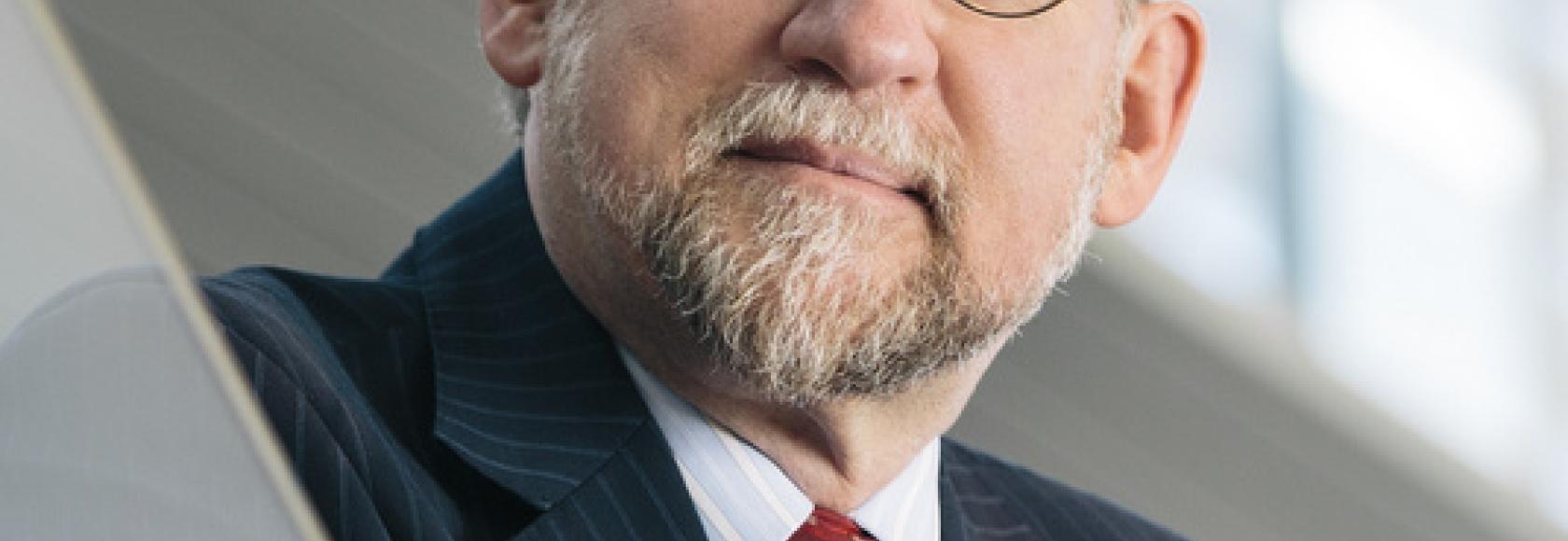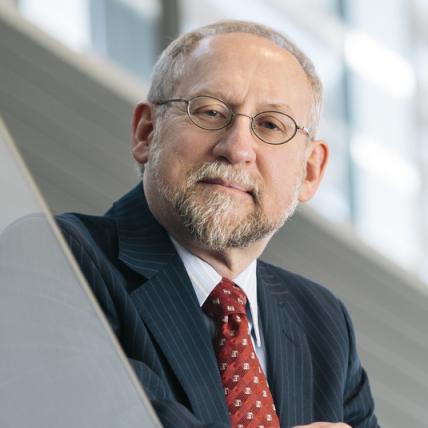Biography
“Legal history gives students the long perspective – seeing what law changes and what law stays the same can teach us much,” says Paul Finkelman, the Marquette Law School Robert F. Boden Visiting Professor of Law. “As a historian, I was interested in how society changes. How do we get better as an American people? I eventually concluded that law was a major vehicle.” While Finkelman says the law does not always work, it often reflects what a society is about.
Finkelman has been teaching students to be lawyers for nearly 50 years. He is a part of the Marquette Law School for the 2024 spring semester. With a specialty in constitutional history and law, Finkelman is teaching courses on American legal history and a seminar on the law of American slavery. The first, Finkelman says, includes looking at case studies, including the Salem Witch Trials, to observe the importance of criminal due process. The course also looks at the development of freedom of speech and the press, the internment of Japanese Americans in World War II, and the way slavery has impacted the U.S. Constitution. One of the cases on slavery, Ableman v. Booth, t began right here in Milwaukee and ended up before the U.S. Supreme Court. Finkelman says he wants students to come away from this class understanding why justice, law, and civil liberties are important.
Finkelman says his seminar will give students a chance to reflect on how constitutional law made 150 years ago still affects us today. “There are still a number of clauses in the Constitution which were designed to protect slavery, and some of them are still viable today, such as the electoral college.”
Two people Finkelman studied to better understand America’s laws are Thomas Jefferson and Abraham Lincoln, both of whom were practicing lawyers. “Both Lincoln and Jefferson are key figures in American history.” Both, Finkelman acknowledges, contributed to American law in different ways: Jefferson in supporting religious freedom but also owning slaves, and Lincoln through emancipating slaves and keeping the Union together.
In addition to his love of history, Finkelman was declared a baseball law expert by ESPN after he served as an expert witness in a case over the ownership of Barry Bonds’ 73rd home run ball. Finkelman says he never thought of himself as a baseball law expert, but “if ESPN says you are, that makes you one.”
Finkelman advises students to be prepared for change. “Students come into law school thinking they want to do this one thing, and they may end up thinking it wasn’t as much fun as they thought and end up doing something entirely different. You should have your mind open to the possibilities. You shouldn’t see law school as a fixed price dinner, but as a buffet.”
A specialist in American legal history, constitutional law, and race and the law, Professor Paul Finkelman is the author of more than 200 scholarly articles and more than 50 books. The U.S. Supreme Court has cited or quoted him in six cases, and many other federal and state courts have also cited him. His op-eds and shorter pieces have appeared in the New York Times, the Washington Post, USA Today, Washington Monthly, and on the Huffington Post.



